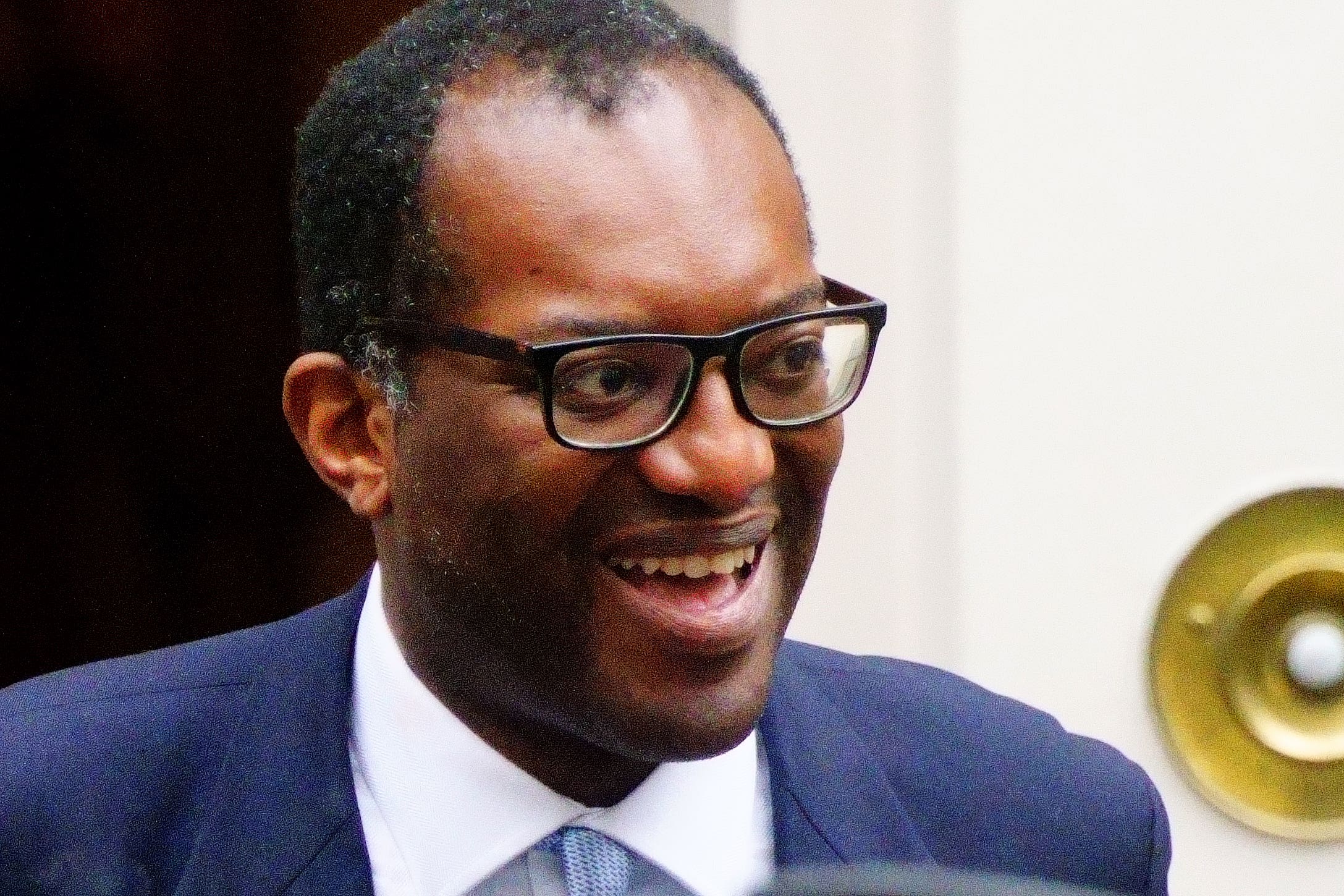Kwasi Kwarteng again refuses to apologise over economic turmoil
The former chancellor also urged Rishi Sunak to cut taxes.

Your support helps us to tell the story
From reproductive rights to climate change to Big Tech, The Independent is on the ground when the story is developing. Whether it's investigating the financials of Elon Musk's pro-Trump PAC or producing our latest documentary, 'The A Word', which shines a light on the American women fighting for reproductive rights, we know how important it is to parse out the facts from the messaging.
At such a critical moment in US history, we need reporters on the ground. Your donation allows us to keep sending journalists to speak to both sides of the story.
The Independent is trusted by Americans across the entire political spectrum. And unlike many other quality news outlets, we choose not to lock Americans out of our reporting and analysis with paywalls. We believe quality journalism should be available to everyone, paid for by those who can afford it.
Your support makes all the difference.Kwasi Kwarteng has again refused to apologise for the financial turmoil unleashed by his time in office alongside Liz Truss.
The former chancellor, whose mini-budget triggered turbulence in the financial markets and drove up mortgage rates, said he was “not in the business of forgiveness”.
“I’m not going to apologise,” he told Channel 4 News.
“I’ve said very clearly, you know, what was done was done, but I don’t believe that politicians are endlessly, you know, apologising for everything that has gone in the past. I’m looking forward.”
Politicians can make mistakes, do make mistakes
After Ms Truss’s disastrous seven weeks as prime minister, her successor Rishi Sunak and Chancellor Jeremy Hunt promptly shifted direction in a bid to reassure financial markets.
Mr Kwarteng said it was MPs’ job to be “loyal to the leader”, even as he put pressure on Mr Sunak to cut taxes.
He said: “I would like to see, as I tried to effect when I was at the Treasury, lower taxes. But as we saw only last autumn I think it has to be done in a careful way.
“I don’t think that you can just simply rip the doors off and say, right, this is what we’re doing.”
Asked whether that was what he and Ms Truss had done, Mr Kwarteng said: “Well I wouldn’t say we ripped the doors off, but it was a very, very high intense time period and we tried to do lots of things in that one statement.”
Asked whether he felt people’s anger about crippling mortgage rates, he said “no”, adding that he was “very struck, actually, by the fact that people are ‘you tried your best’”.
When it was put to him that the mini-budget cost British taxpayers tens of billions of pounds, he said: “All of that is something that happens. There were lots of issues relating to interest rates, relating to the exchange rate, relating to what the Fed were doing. Politicians can make mistakes, do make mistakes.”
Mr Kwarteng said being “sacked on Twitter” by Ms Truss after he implemented her tax-cutting agenda was “a pretty extraordinary thing to live through”.
I'm not sure that going to Taiwan and making the statement she did was necessarily the best way of approaching that, but she's got very strong views
The now-backbench MP praised Mr Sunak as a “very cool customer” and said Ms Truss had not “reacted in a particularly calm way”.
He questioned Ms Truss’s way of pushing Mr Sunak to take a stronger stance towards China during a risky visit to Taipei.
The former prime minister was accused by Beijing on Wednesday of putting on a “dangerous political show” that will harm the UK when she delivered a hawkish speech in Taiwan.
Mr Kwarteng said: “She should talk about it. I’m not sure that going to Taiwan and making the statement she did was necessarily the best way of approaching that, but she’s got very strong views.”
Ms Truss’s short-lived premiership ended in humiliation after her mini-budget led to chaos on financial markets, forcing the Bank of England to take emergency action to prevent pension funds collapsing.